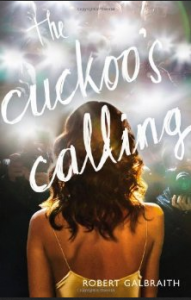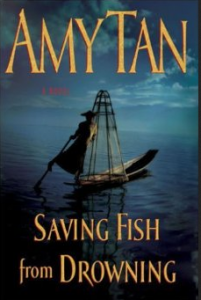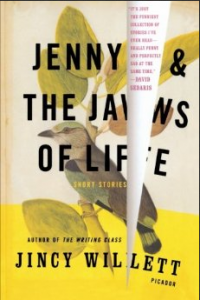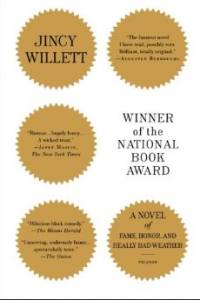Well! I managed to sign up for some volunteering at one of the schools! If you remember, I tried to do so earlier, but never heard back from the volunteer coordinator. This time, I was dropping off Elizabeth’s Epipen at the school nurse’s office (such things have to be hand-delivered by a parent), and an acquaintance was there and mentioned there was a volunteer training session going on right that minute for a particular volunteer position she’d done before and thought was a good one, and she said I should go right now and join in. And so I did.
The reason I’m not specifying the type of volunteering is that I’m about to make some complaints about a fellow parent and suddenly I’m nervous about being Found Out. So what I will do is use a stand-in for the type of volunteering AND for the types of things I want to complain about. Let’s say that the type of volunteering is helping set up the lunchroom, and let’s say it takes an hour and a half each time, and you can sign up for however many/few days you want out of an available eight days per month, and that there will be two or three volunteers each time. There: now you can imagine me going to this training session, and they are showing us how to set up the tables and put out the silverware bins and where/how to set up the milk station and so forth.
Okay, now I will describe the other parent. So, we are there to learn how to do this. And she started RIGHT IN criticizing the old way, before we’d even been fully trained, let alone tried out the job for real. She was disgusted by how unclean the back of the silverware caddy cart was (“Ug, don’t you ever CLEAN this?,” she said, constructively, to the person training us), an area that no one touches and that touches nothing, and also I didn’t agree it was dirty (it looked like it had been cleaned many times but was old and had been periodically re-painted without sanding first) and so I certainly don’t want to clean it with her when that is not what I’m volunteering for, and also at that moment we were SUPPOSED to be learning how to fill the silverware caddies. And also: RUDE.
Then, during a 30-minute training session, she managed to perform THREE highly-controversial and irrelevant mini-rants, one of which criticized public schools in general (keeping in mind that we were at that moment standing in the public school our children attend); one of which was on a topic such as vaccines, or why we should consider a relationship with Jesus Christ; and one of which directly criticized one of the policies of the school we were in. The root of her complaint on that third subject seemed to be that she should be exempt from that policy, and that she had every reason to be indignant/offended that it was enforced even for her. She told us how she had given the principal what-for (evidently she was wildly victorious in the way most of us are only while lying awake imagining it differently than it happened—and yet no policies changed as a result of this confrontation, not even for her) and then delivered a rather scornfully-put closing remark (“I mean, SERIOUSLY! What are they THINKING??”), and then waited. A couple of us tried to brush it off politely with “Mm” sounds. But she would not have it. “You know what I mean?,” she said, turning directly to me. “Mm,” I said. “I mean, RIGHT?,” she said. So that I finally said, mildly, “Well, I see what you mean, but I still see why they do it that way.” So then she kept going about how actually it was stupid, and then I tried another “Mm,” and it didn’t stop her, so then I did what I should have done first, which was to say, “Oh, I see they’re showing us how to…” and trailed off as I walked away toward something I acted like I needed to have explained to me about keeping the forks and spoons separate.
I looked at the sign-up sheet and guess who I am working with on five of the six days I signed up for? Yes. Paul thinks she will simmer down a bit, but he was working on the theory that she was nervous and keyed up in a new situation, whereas my impression (and I’ll remind you that I was there and Paul was not) was that she was just starting to get comfortable. She didn’t seem nervous, she seemed oblivious and over-confident and a little dim, and like she hadn’t yet reached the stage of life (“adulthood”) where she knew there were different ways to think about things and that not everything was set up around her own way. I suppose nervousness could exhibit in that way; I’m not ruling it out, but I’m not counting on it either. Instead I am reassuring myself that I have only signed up for six sessions, so if it’s awful and she’s awful, I will get through it and then not sign up for any more of that, and try something else instead.
In the meantime, I am looking for advice. The volunteer job-type I used as a stand-in for the real job sounds like people would be spread out working separately; but the actual job is working closely together and not being able to get away from each other, and not much need to discuss the work itself (and thus, plenty of time to chat). What are some good things to say to someone who is basically DEMANDING either agreement or disagreement? Like, what I’d like to say is “Dear god, why are you bringing up this controversial topic HERE and NOW, and WHY OH WHY aren’t you taking a hint from our unenthusiastic/noncommittal responses and away-turning body language??” What I DON’T want to do is discuss my opinions one way or another with someone so aggressive: I don’t want to argue with her, and I don’t want to pretend to agree with her, and I don’t want to clean that silverware cart with her.
So that is why I am asking: What are some of your ways of dealing with people who won’t take “Mm” for an answer? And I’m thinking of actual, sayable things, not the things we say in our imaginations while lying awake showing reality how it OUGHT to be done.





